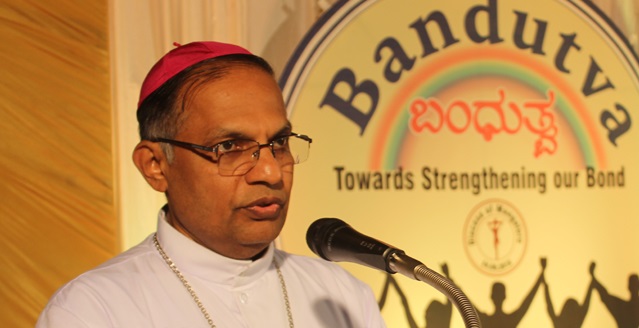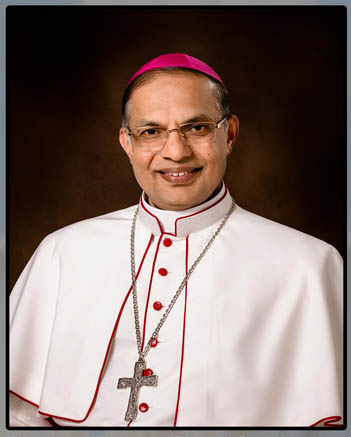
Bandhutva
Towards Strengthening our bond
Most Rev. Dr Peter Paul Saldanha, Bishop of Mangalore launched a Bandhutva initiative aimed at spreading the message of peace, harmony and brotherhood in the society in the year 2018.
In this connection, the Bishop convened a meeting on September 24, Monday wherein leaders from a wide spectrum of the society right from political, social and religious fields as well as intellectuals and media personnel attended and put in their valuable suggestions.


